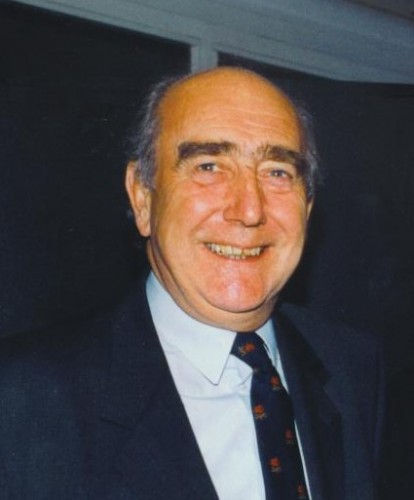Peter Corrigan, the award-winning sports writer who was renowned as sports editor of The Observer, has died in his hometown of Penarth, aged 80.

Long-time member of the SJA, Peter had been suffering with cancer but passed away peacefully in his sleep surrounded by his family.
He rose from fetching tea at the South Wales Echo to be lauded as one of Wales’s most revered sports journalists, making his way across the Severn Bridge to become an admired figure on the thriving Fleet Street football scene of the 1960s. Among the newspapers he worked for in those period were the Daily Herald, The Sun, and the Daily Mail.
Corrigan covered the 1966 World Cup final and afterwards attracted the ire of the England manager, Alf Ramsey, who discovered that Corrigan welcomed both of West Germany’s equalisers.
However, Corrigan’s reaction was nothing to with his Welsh roots, but because he had backed Sepp Herberger’s outsiders at 33/1. Charting the West German team throughout the tournament, Corrigan produced the notable line, “not a Herr out of place”. He was not entirely shunned by the boys of ’66, though, as he would later ghostwrite Martin Peters’ autobiography Goals From Nowhere.
Corrigan returned to Wales at the start of the 1970s to work in PR but was soon lured back to print, freelancing across many sports for The Guardian and The People. In 1973 he was appointed chief football correspondent at The Observer.
After seven years, Donald Trelford, the paper’s editor, invited Corrigan to become sports editor. It was in this role where Corrigan made his greatest impact, bringing together one of the most lauded sportswriting teams, led by Hugh McIlvanney.
Not everyone made it into Corrigan’s team, though: he turned down Captain Mark Phillips as equestrian correspondent after interviewing the Queen’s son-in-law at Buckingham Palace.
Corrigan carried on writing, introducing “Cyclops”, one of the first sports columns on a British national paper.
Known for his humour and enthusiastic company in the local Cockpit pub, Saturday sports shifts on The Observer were much in demand. Henry Winter was one who made their first tentative steps on the desk, while others such as Booker Prize-winning author Julian Barnes perhaps wisely decided their writing careers should go down different paths.
Simon Kelner, the future Independent editor, was one of Corrigan’s deputy sports editors and years later he would be heard repeating some of his mentor’s catchphrases. A brilliant after-dinner speaker, Corrigan could often be found with a microphone in one hand and a large scotch in the other. McIlvanney once said of his friend: “If Peter sees eight people waiting at a bus stop, he stops and gives a speech.”
By the late 1980s, following the retirement of the renowned Peter Dobereiner and the newspaper’s office move to Battersea, Corrigan took over as the paper’s golf correspondent – despite Dobereiner describing Corrigan’s swing as “like a policeman trying to break down a door”. In 1993, after 20 years at The Observer, Corrigan joined the Independent on Sunday for whom he became chief sports columnist. Corrigan wrote the acclaimed autobiography of Jonathan Davies Codebreaker and remained close to the rugby union and rugby league player. He also began writing The Hacker column, chronicling the dramas and disasters that can befall the less gifted golfers.
The Hacker column ran for more than a dozen years and after he continued to write it for the internet on www.thegolfinghacker.com, as was fondly reported here by his old friend Norman Giller, and recounted personally here by Corrigan himself.
The winner of the Welsh Sports Journalist of the Year in 1991, Corrigan was the first sportswriter to be inducted into the Welsh Sport Hall of Fame.
Corrigan is survived by daughter Sally-Anne and son James, who is golf correspondent of the Daily Telegraph. Details of the funeral will follow.